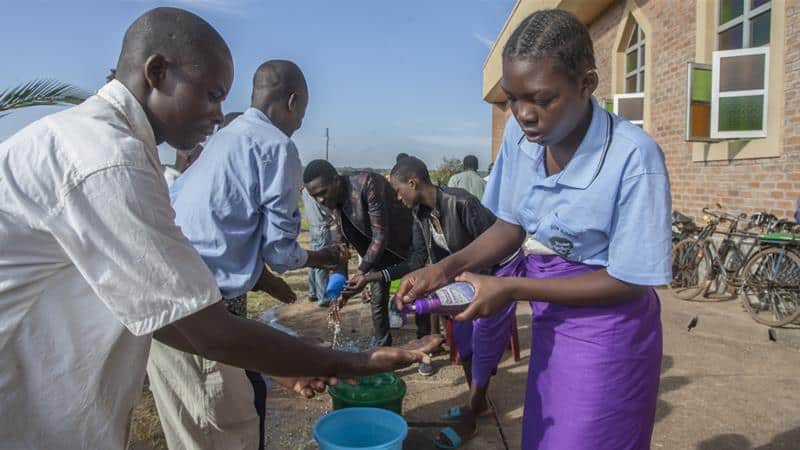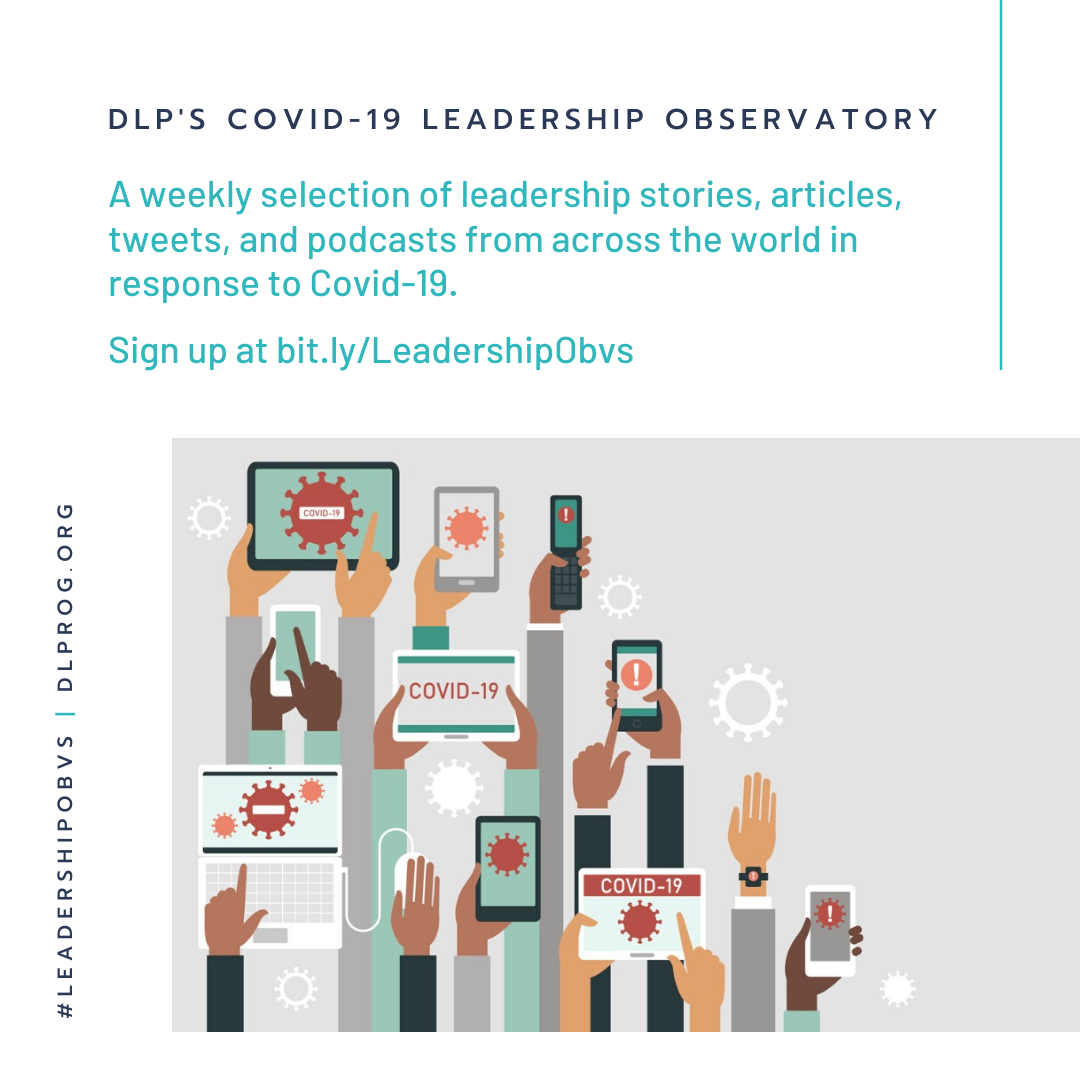Image: Malawi hand washing practices ahead of a three week lockdown.
Female leadership during the pandemic is changing how leadership is understood. In a time of crisis, when balancing health and economic outputs is essential, female leaders are role modelling effective leadership to inspire future generations. In this #LeadershipObvs we spotlight women’s leadership by dismantling gender stereotypes, identifying a turning point for the perception of women’s leadership, identifying a need for financial support for female leaders, and exploring the potential damage caused by the male ego.
Maclean argues that we need to go beyond praising women leaders and dismantle gendered stereotypes of leadership. Ardern, Merkel, and Tsai have all displayed strong and authoritative leadership. Maclean also highlights the importance of open political systems to provide these leaders with the opportunity to act with compromise and collaboration and not aggression and domination. Maintaining adequate checks and balances enables women to become leaders because of their skills, qualifications, and experience and not be disadvantaged because they are female.
#LeadershipObvs in a nutshell: Favouring local participation in politics and appropriate checks and balances supports female leadership and prevents strong-man populist leaders from reaching positions of power.
Women are disproportionally affected by COVID-19. Women are likely to experience an increased risk of gender-based violence, reduced access to essential sexual health resources, and a reduction in economic activity. In this report, Fuhrman and Rhodes analyse research commissioned by CARE International in 30 countries to investigate the role of women’s leadership during COVID-19. Despite barriers, women do lead – as activists, leaders, volunteers, and members of women-led groups and networks. Recommendations for National Governments, International Donors, and International NGOs include the need for urgent financial support to achieve equal representation in response structures.
#LeadershipObvs in a nutshell: NGOs, Governments, and Donors need to promote women’s leadership in COVID-19 response structures through funding and meaningful representation.
Will the successful COVID responses achieved by countries with female leaders influence our readiness to elect more women into power? Chamorro-Premuzic and Whittenberg-Cox highlight four legitimate qualifiers to those who wish to poke holes at the “women are better leaders” argument: sample size, conflating factors, causality, and selection bias. But, crucially, the authors argue that a new narrative around leader selection may help society to recognise and accept leaders based on their expertise, intelligence, curiosity, humility, empathy, and integrity. And therefore increase the trust and quality of leadership.
#LeadershipObvs in a nutshell: Tales of influential female leaders succeeding through this crisis could lead to a change in the overarching narrative of what a strong leader looks like – creating role models for future generations.
Nicholas Kristof, ‘What the Pandemic Reveals About the Male Ego’, The New York Times, 13 June 2020.
COVID-19 provides evidence of effective female leadership, not only in grass-roots positions and on leadership boards, but as presidents and prime ministers. Typically, masculine leaders are less likely to seek support and specialist advice when compared with their female peers. Kristof argues that the kind of country that chooses a woman to lead factors into delivering successful health outcomes. Female leaders need to balance communicating effectively in a low-key way without appearing self-promotional, to retain their support base.
#LeadershipObvs in a nutshell: Female leaders are most likely to listen to the advice of specialist and therefore make more informed decisions.
Becca Cattlin, ‘Female leaders during COVID-19: do women lead differently?’, IG, 22 June 2020.
Female leadership styles are more likely than male styles to encourage organisational participation in a strategic vision, often by consulting with a wider selection of individual advisors and experts. While male leaders take additional risks during a crisis, female leaders are the opposite and demonstrate risk-averse behaviour. In this blog, Cattlin presents six videos which capture the experiences of six female leaders during the COVID-19 pandemic, all who hold leadership positions in global businesses. Male political leaders should seek greater expert advice and include more people in decision-making.
#LeadershipObvs in a nutshell: Female leaders in business are encouraging more male leaders to adopt a typically ‘feminine’ leadership style.
Sign up to receive the #LeadershipObvs directly to your inbox
A full list of leadership resources
Other resources are available on Twitter using #LeadershipObvs @DLProg











